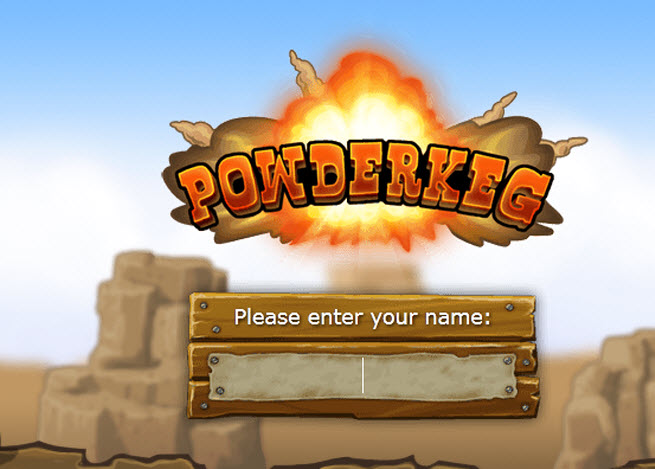Artillery is a new video game company that is rolling out its big guns. The company believes that it can create real-time multiplayer gaming on web browsers, with no downloads required for games that are very high quality. Effectively, Artillery wants to use clever software, not cloud technology, to turn a web browser into a game console.
Ankur Pansari, the chief executive of Artillery, said he was playing an online multiplayer match in the popular StarCraft game about six years ago with his co-founder Ian Langworth. But Pansari had forgotten to bring his disk with him, so he couldn’t play the game at all. More recently, he wanted to download a game, but the bandwidth for his broadband connection was so poor that it would have taken far too long to do it. Why not, he asked, just play the multiplayer version of the game through a web browser? Pansari’s team of former early Google and Facebook engineers think they can deliver this experience.
“I’m looking for a first-rate experience where I can play core games immediately, without a plug-in that crashes my web browser,” Pansari said in an interview with GamesBeat. “Our mission is to transform the modern web browser, which is more than capable of running core games at this point, and turn it into a game console.”
AI Weekly
The must-read newsletter for AI and Big Data industry written by Khari Johnson, Kyle Wiggers, and Seth Colaner.
Included with VentureBeat Insider and VentureBeat VIP memberships.
The company will do that by using HTML5, the lingua franca of the web, to create multiplayer games. Today, Artillery is releasing its first multiplayer game, Powderkeg, which showcases the technology.
It sounds like cloud gaming, but it’s not. With cloud technology, a game is computed in a web-connected data center, and then a compressed video is sent over a broadband connection to the gamer, creating the illusion that the game is running on the user’s machine even if that machine isn’t powerful enough to compute the game. Companies such as OnLive, Gaikai, Playcast, Otoy, and Ciinow use that technology.
But Pansari has outlined his technology in a post that talks about “six impossible tasks” that his company has to overcome to make its vision a reality. The goal, he says, is to let players begin playing rich, AAA games seconds after clicking a link. Artillery can do so by building an asset-streaming system that can look at a game, figure out exactly which assets a player will require at each point, and then get there just in time. (Progressive download games use the same idea, but there is no download here.)
One of the tricks is to build tools to automatically create degraded versions of art assets and have the client browser download the degraded assets first, so the player can start playing the game immediately. Then, the technology will stream the high-quality assets as quickly as possible and swap them in as they finish arriving.
Back in August, Artillery announced that it raised money from First Round Capital, Playdom cofounder Rick Thompson’s Signia Ventures, Chris Sacca’s Lowercase Capital, General Catalyst, Andreessen Horowitz, longtime former Google employee Ben Ling, Greylock’s Ali Rosenthal, Bubba Murarka, Tim Ferriss, Crunchfund, and Kevin Colleran, who was one of Facebook’s first employees. That’s an all-star cast for a humble gaming startup with only a handful of people.
But the significance of bringing real-time, synchronous multiplayer gaming to the web is a big deal. It enables multiplayer gaming within HTML5 through the Chrome and Firefox browsers. For now, the technology works with two-dimensional multiplayer games. In the long term, Pansari said that the company wants to add 3D graphics games.
If Artillery succeeds, it will be much easier for players to adopt new games and play them with friends. This change could have a big impact on console games and could make developing multiplayer games for multiple platforms a lot easier.
“This is a huge pain point for anyone who isn’t in a huge studio,” said Pansari.
Rival technologies include native code for social and mobile platforms, as well as Google’s Native Client technology (which requires a one-time download). Other startups supporting HTML5 game development include Turbulenz, Game Closure, and Ludei.
“Our vision may take a while — maybe 10 years to 20 years,” said Pansari. “But we believe we can turn the web browser into a gaming console and disintermediate the consoles. All modern TVs could just run games, period. I just want to play with my friends in real-time and not have to install anything.”
The company has five employees, and it started about six months ago.
VentureBeat's mission is to be a digital town square for technical decision-makers to gain knowledge about transformative enterprise technology and transact. Learn More
